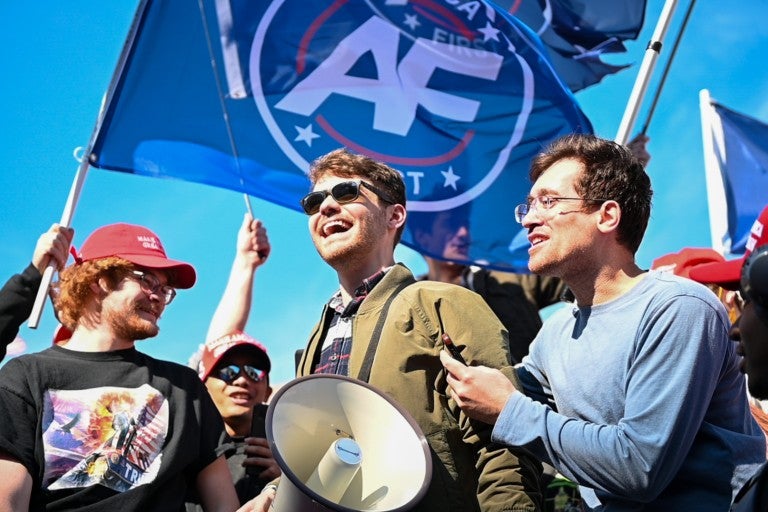May 18, 2020 — Washington, D.C.
This piece originally appeared in El Pais.
As if the dramatic dislocations and political, socioeconomic, and psychological repercussions - at a collective and individual level - caused by covid-19 were not enough, the months of isolation and obsessive connection with social media have witnessed an increase in conspiratorial voices. These extremists, in their feverish speech, claim delirious theories of every kinds trying to identify the culprits of the health crisis and with it an alleged causality as a balm in a climate of almost total uncertainty, satisfying those who feel victimized again, now because of the pandemic.
The use and abuse of these arguments range from the mutual accusations between China and the United States for being the original source of the virus, thus seeking to undermine each other's power to the regrettable verbal and physical attacks against Asians, immigrants and anyone who within the imaginary of its proponents, consider that their enemy's, the other's evil objective is to profit economically, politically or even metaphysically from the world's misfortunes.
Demonstrations in various cities across the United States against the mandate of governors who seek to maintain social isolation in force and in favor of the early reopening of the economy before indicators sensibly reflect that the rate of infections and deaths from the coronavirus has subsided , have attracted -among its adherents- extremist groups with questionable agendas including white supremacists flying Nazi flags
The FBI has warned that racist groups in the United States are effectively stoking the flames of hatred and prejudice by urging their followers - if infected - to look for Jews in synagogues to infect them with the virus. This incitement has not remained merely rhetorical but has already led to vandalism attacks on synagogues in Alabama and California, just one year after the attack against the Poway (California) synagogue that resulted in the death of a 61-year-old woman, Lori Gilbert-Kaye. Beyond the borders of the United States, countries like Turkey and Iran have reinforced their permanently hostile positions and attitudes towards Jews and Israel, and have joined the chorus of international voices blaming them for the pandemic.
On the internet, this type of toxic discourse has increased exponentially, revealing novel ways to promote itself, including what is now known as “zoombombing.” Virtual programs carried out by Jewish groups are interrupted by neo-Nazis or white supremacists who manage to surreptitiously connect and to introduce violent slogans, pornography and offensive images on the participants' screens. The various social platforms are already taking measures to combat and neutralize these types of dangerous incidents that violate the right to privacy and that constitute an incitement to violence, typified as a crime by many legal frameworks, including in the United States, as in other parts of the world.
All this inevitably takes us back to several chapters in world history during which the social pathology of antisemitism was significantly fueled as a direct consequence of epidemics that resulted not only in millions of deaths from infections, but in pogroms against Jewish communities. Echoes of medieval allegations proliferate online: Jews poisoned the water wells; they fight - in partnership with Israel - for the control of the world economy during the crisis; Israelis have already produced the vaccine and seek to profit from its sale; the virus is, in effect a divine punishment against the Jews for rejecting Jesus Christ, or Israel created the virus as a weapon against Muslims and Iran. The bigger the lie...
There is no doubt that the parallels do not apply to current responses to these types of delusional charges. In the past decade, many nations across the globe - their governments and their civil societies - have taken the virus of anti-Semitism and other prejudices with due seriousness, taking action to limit their ability to infect. Among them, educational programs towards the acceptance of the other, domestic or regional legislation that identifies antisemitism as a crime that must be addressed with all the rigor of the law, public censure through forceful statements by leaders at the highest levels, multilateral instruments such as the International Holocaust Remembrance Alliance’s working definition of antisemitism that clearly identifies all its ideological sources and that is being adopted by more and more countries, or the appointment of special representatives to monitor and combat antisemitism in the United States, Germany, France, and the United Nations for example.
We still have a long way to define what the world will be like once we manage to overcome this global public health crisis and the many challenges that have arisen from it. Among the many lessons must surely be the absolute rejection, in every society and social platform and once and for all, of any attempt to manipulate fear and uncertainty by ideological extremists and their obsessive and unwarranted search for scapegoats which can lead to unfortunate episodes of violence against minorities and vulnerable groups
Dina Siegel Vann is Director of AJC’s Arthur and Rochelle Belfer Institute for Latino and Latin American Affairs.



